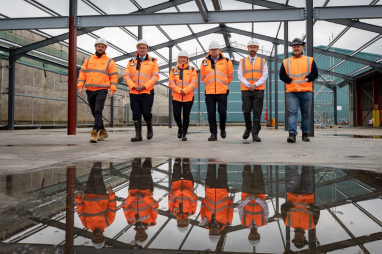- Nike KD 15 Colorways + Release Dates , IetpShops , nike sb good skating pants
- nike outlets sell jordan 1
- SBD - 600 Mid GS Medium Soft Pink FD8780 , NIKE◆AIR JORDAN 5 RETRO TORO BRAVO 27.5cm RED DD0587 - 116 - NIKE◆AIR JORDAN 5 RETRO TORO BRAVO 27.5cm RED DD0587-600
- nike zoom griffey black and grey shoes gold women - insa Nike Air Force 25 Supreme Black @ Purchaze - IetpShops
- adidas tycane lenses for sale on craigslist cars , adidas' Contemporary Hybrid Silhouette, IetpShops, adidas mens manazero pants suits shoes
- Air Jordan 1 University Blue 555088 134 Release Date Price 4
- Air Jordan 1 Mid Bred 554724 074 2020 Release Date 4
- air jordan spring 2021 retro collection release date info
- Air Jordan 1 Blue Chill Womens CD0461 401 Release Date 4
- air jordan 1 mid chicago 2020 554724 173
- Home
- News and analysis
- Info hubs
- Events
- Video
- Case Studies
- About us
- Magazine
- Advertising
Produced for the industry by the Association for Consultancy and Engineering
Opinion
Construction industry skills challenge is a "ticking time bomb"

With Brexit looming and industry skills already a challenge, Paul Payne explores whether the situation is a ticking time bomb.
Skills shortages within construction and its associated industries have been endemic for some time now and, despite urging from leading employers, trade bodies and agencies like ourselves, they continue to get worse. And with new data from the Royal Institute of Chartered Surveyors (RICS) suggesting that a hard Brexit could dump further problems on the industry, it appears that something needs to be done, and fast. But why are there skills shortages within construction and what can be done to stop them?
Construction has faced a lack of skills since the global recession when thousands of skilled professionals left the field in search of new work. Those individuals have never been properly replaced and, at the same time, the sector has faced challenges with an ageing workforce - approximately 19% of all professionals are aged 55 and over and can therefore be reasonably expected to retire in the next decade. However, worryingly, replacing those professionals approaching retirement isn’t even the biggest challenge we face.
Our departure from the EU has created headaches for many industries but perhaps the most severely impacted is construction. If RICS data is to be believed - and we do face a ‘hard’ Brexit as many expect - then almost 200,000 construction professionals could be forced to leave the UK as a result of tighter immigration laws and a loss of freedom of movement. So, if the shortages are bad now, imagine what they’ll be like after we leave the European Union. And, as yet, no realistic solutions for how we replace these departing individuals have been proposed.
Some commentators put forward the idea of ‘brickie visas’ - a temporary measure which would allow some workers including joiners and bricklayers, for example, to remain in the country for three years following our departure from the EU - however this was largely negatively received. Firstly, it only plasters over the issue and means we’ll simply face the same, if not more severe, issue a few years down the line and secondly, it surely wouldn’t appease those who voted leave in order to see tighter control over the UK’s borders. What’s needed is a more robust and long-term solution.
To an external audience, particularly those in the ‘millennial’ bracket, construction doesn’t benefit from a positive reputation and is seen as a legitimate career option by far too few young people. This isn’t entirely surprising, even many of those working within the field don’t do enough to promote the sector as a viable career option, and even fewer actively promote career opportunities to school aged youngsters and those further up the education chain. Ultimately, we need to widen the pipeline of people interested in a construction career and that will require a long-term and dedicated approach. As an example, we have launched our #GirlsAllowed and One Way into Construction campaigns that are designed to improve the number of women and young people entering the field respectively. However, similar initiatives are few and far between.
It’s worrying that few organisations truly appreciate the extent of the skills shortages and the impact they could have a few years down the line, particularly as the industry contributes around 8% of overall GDP. While it may seem like a lot of work to engage with almost an entirely new community - from a standing start - it’s absolutely necessary to put the graft in now, rather than face the consequences in the future.
Unlike other ‘solutions’ like brickie visas, widely promoting the potential of a construction career and engaging with youngsters will provide a long-term fix, and won’t fall apart a few years down the line. We urge construction employers and trade bodies to think long-term about the talent crisis and start to launch their own programmes to see how they too can help to tackle the ever-growing skills shortages.
Paul Payne is managing director of One Way, the construction and rail recruitment specialist.





